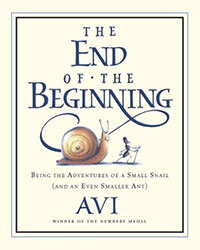This summer, I’m re-posting the 10 Most-Read Stories Behind the Stories from this blog. I’ve rewritten each essay somewhat and included the most-often-asked question about the book.
This book is #6 on the most-read list, my 2nd book.
__________________________________
To understand this story about a story you need to know that my birth certificate name is Edward, though other than signing a credit card I never use it.
Once upon a time I had a good friend, since passed, who was a writer. Avon actually published a number of fine non-fiction books along with his wife who was a professional photographer. They lived in rural North Brookfield, Massachusetts, the setting for another book of mine, Emily Upham’s Revenge.
Now the truth is, as a writer, Avon talked his craft very well, with wonderful wit. Indeed, he was a wonderful storyteller, with many a good tale to tell. That said he was a very, very, very slow writer.
Years ago, I went to visit him and spent a week with him and his wife. Even back in those days I was always writing something. Indeed, while I was visiting, I took the time to put in my daily stint. Avon, however, did not write one word.
“Avon,” I said, “I’m going to write a book that exposes you for the slow-poke you are.”
“Dare you.”
That was the origin of a book originally titled Snail Tale. It features a hyper-active ant named Edward and a snail by the name of Avon, who does things very, very, very slowly. It concerns their mock-epic adventures along one branch.
The legendary editor Fabio Cohen took the book.
“Does it need any more work?” I asked.
His answer was perhaps one of the most astonishing I ever received from an editor. “It needs,” he said, “about eight adjectives.”
He was right.
The book was published very modestly. Years later, another editor (from a different publishing house) read it, liked it, and wanted to republish it. She did suggest more revisions. Done. It was reissued with vastly superior illustration (by Tricia Tusa) and a new title: The End of the Beginning.
For some of my readers this version of the book remains their favorite of my writing.
Moral: Sometimes writing a good book takes a very, very, very long time.
__________________________________
 Most often asked question:
Most often asked question:
“Did you intend the book to be philosophical or silly?”
The best answer to this is to suggest the real inspiration for the book is very much Alice in Wonderland and Through the Looking Glass. Which is to say Lewis Carroll was both a brilliant thinker and capable of being exceedingly witty. I lay no claim to being brilliant, but I hope I’ve been funny.
